SNVSC25 October 2021 LM117HVQML-SP
PRODUCTION DATA
- 1 Features
- 2 Applications
- 3 Description
- 4 Revision History
- 5 Related Products
- 6 Pin Configurations and Functions
- 7 Specifications
- 8 Detailed Description
- 9 Application and Implementation
- 10Power Supply Recommendations
- 11Layout
- 12Device and Documentation Support
- 13Mechanical, Packaging, and Orderable Information
Package Options
Mechanical Data (Package|Pins)
Thermal pad, mechanical data (Package|Pins)
Orderable Information
9.1 Typical Applications
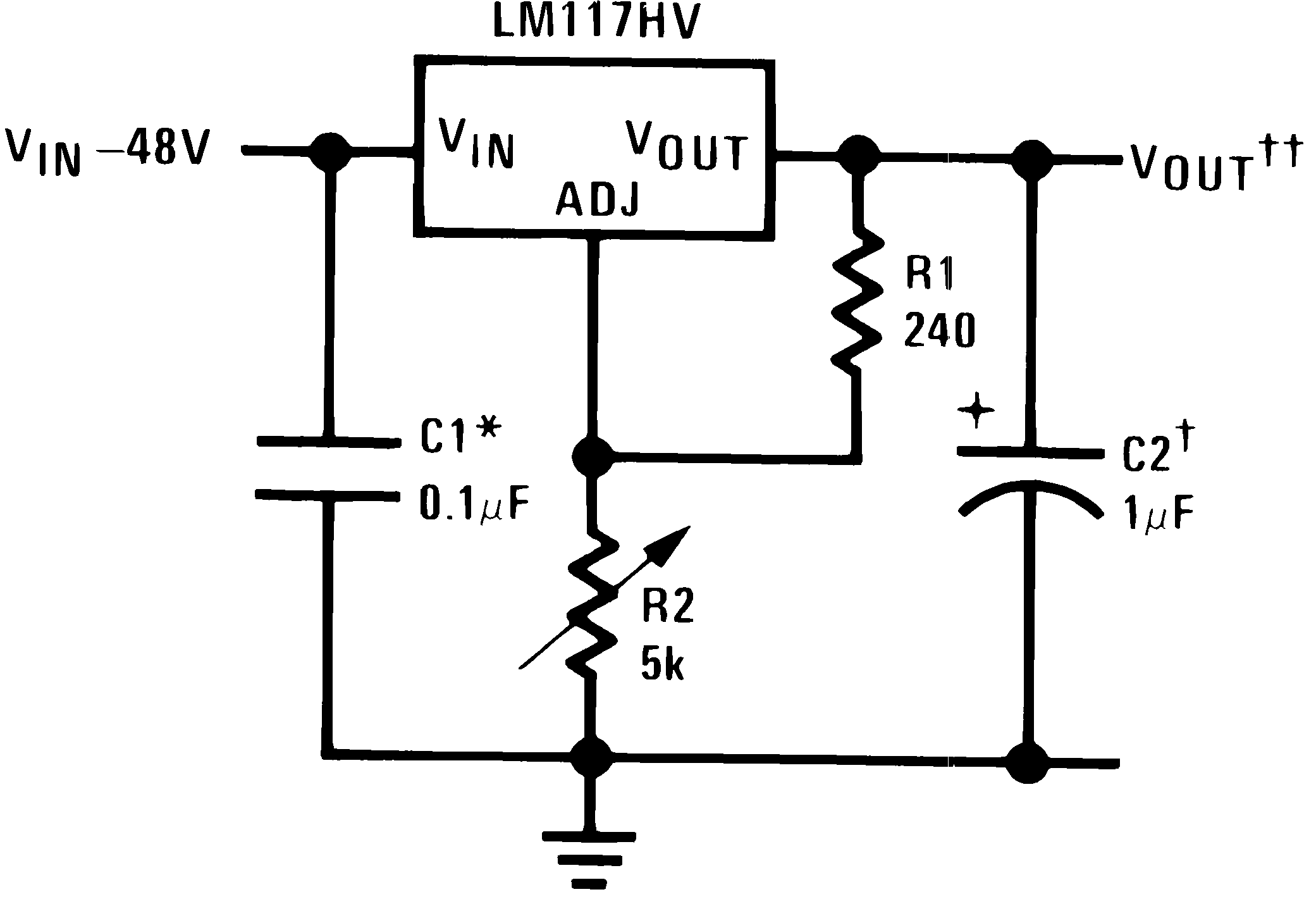
Full output current not available
at high input-output voltages
†Optional—improves transient response. Output capacitors in the range of 1 μF to 1000 μF of aluminum or tantalum electrolytic
are commonly used to provide improved output impedance and rejection of transients.
*Needed if device is more than 6 in from filter capacitors.
†Optional—improves transient response. Output capacitors in the range of 1 μF to 1000 μF of aluminum or tantalum electrolytic
are commonly used to provide improved output impedance and rejection of transients.
*Needed if device is more than 6 in from filter capacitors.
 Figure 9-1 1.2-V–45-V Adjustable
Regulator
Figure 9-1 1.2-V–45-V Adjustable
Regulator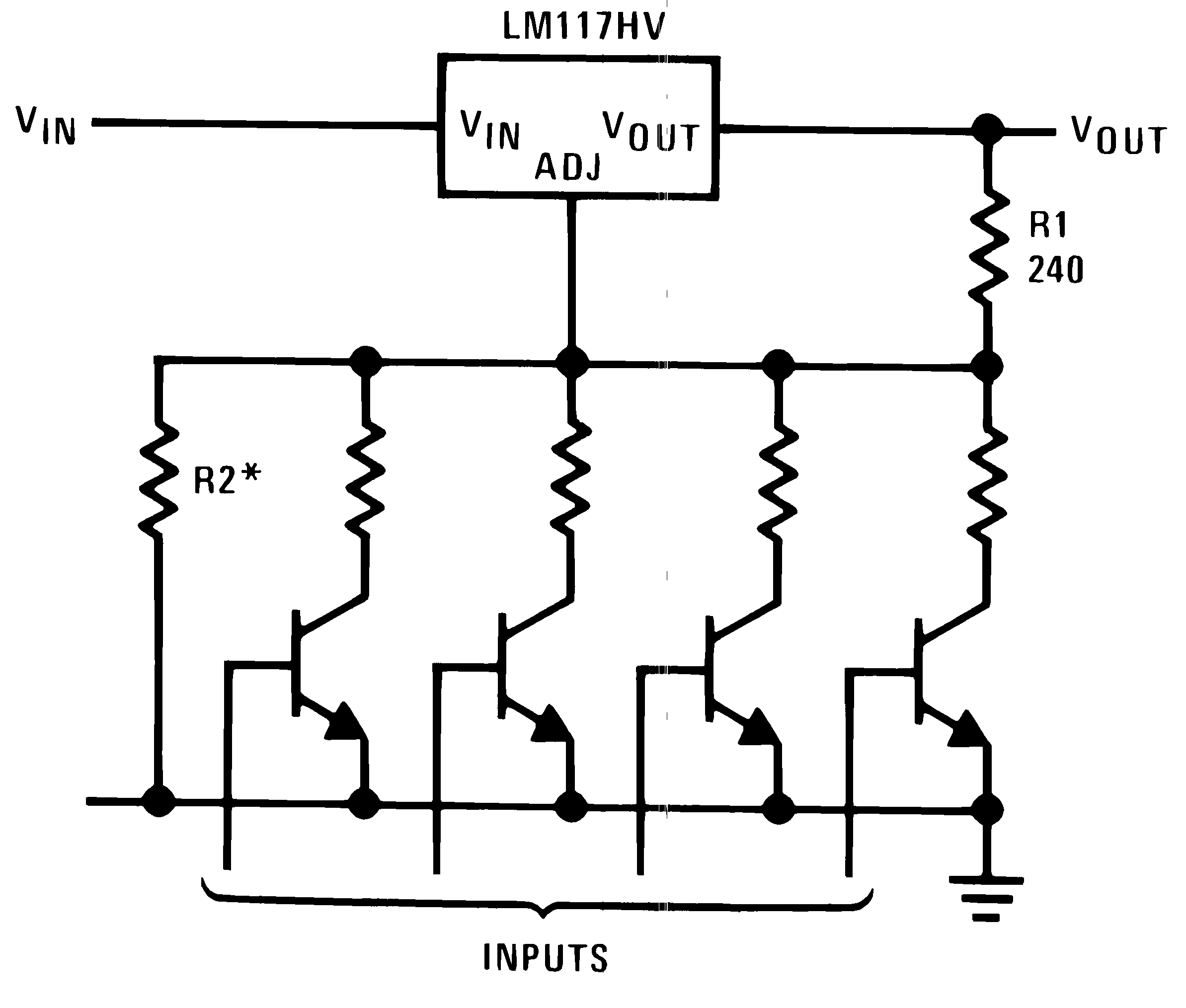
*Sets maximum VOUT
Figure 9-2 Digitally Selected Outputs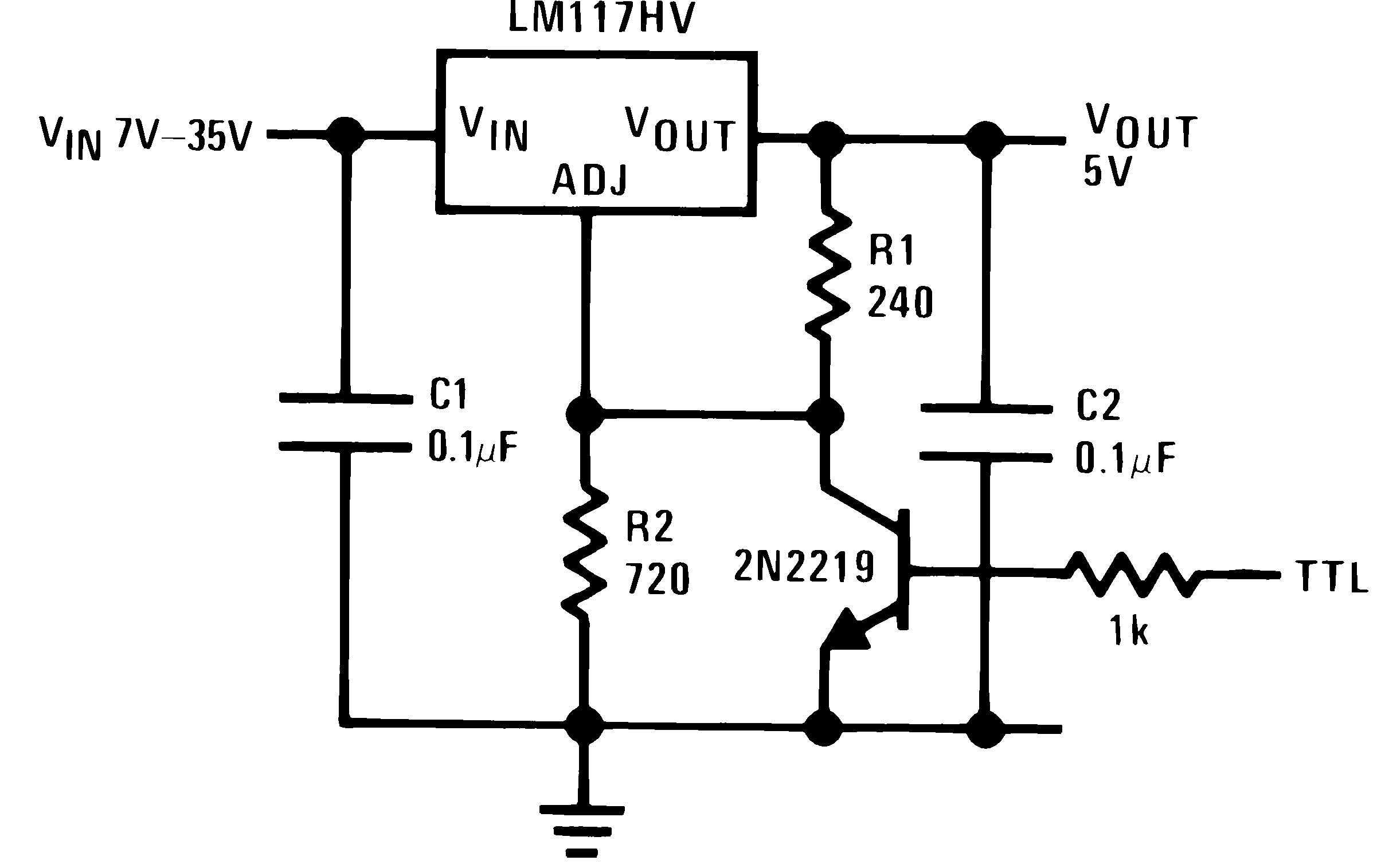
*Min. output ≈ 1.2 V
Figure 9-3 5-V Logic Regulator With
Electronic Shutdown*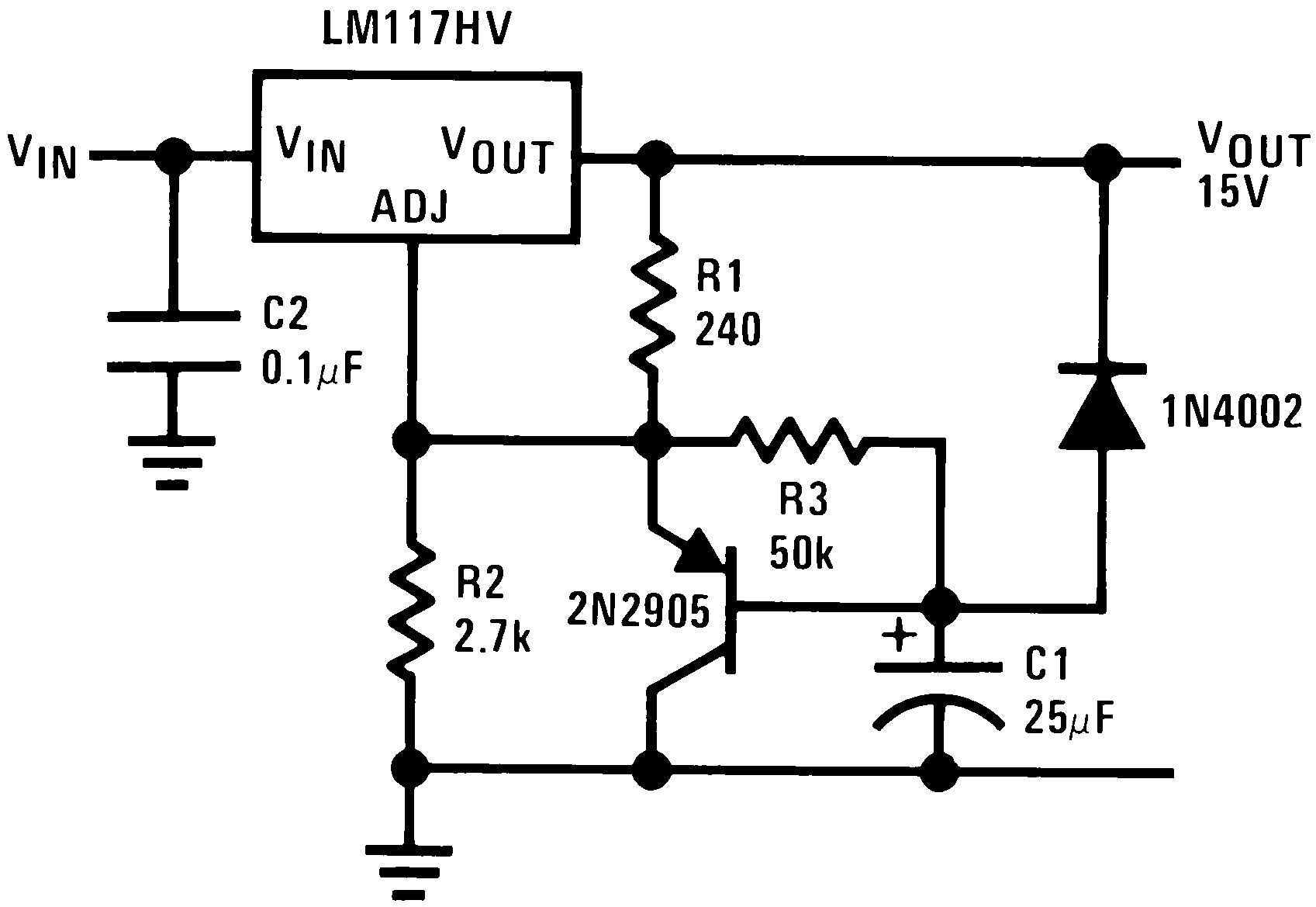 Figure 9-4 Slow Turn-On 15-V
Regulator
Figure 9-4 Slow Turn-On 15-V
Regulator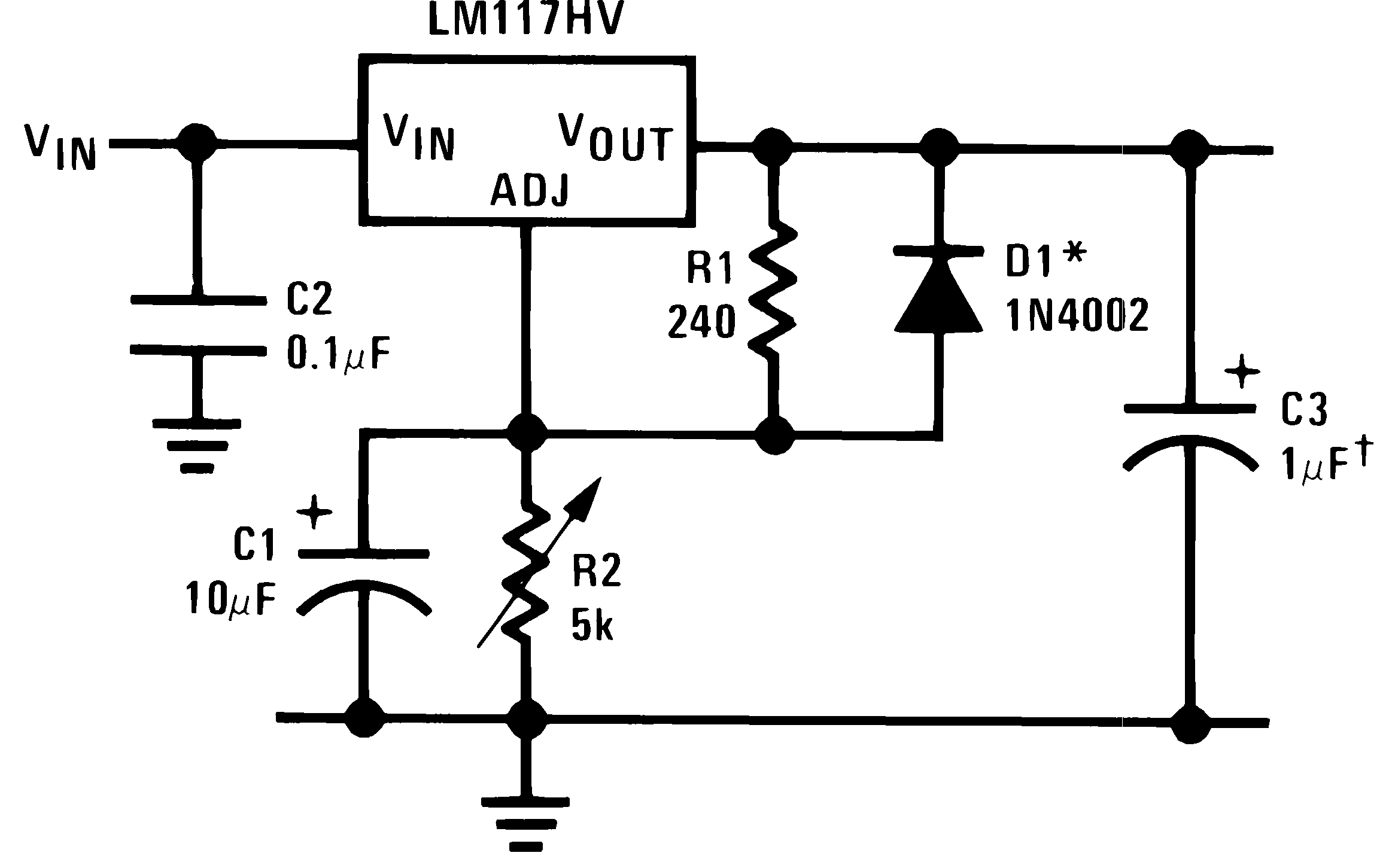
†Solid tantalum
*Discharges C1 if output is shorted to ground
Figure 9-5 Adjustable Regulator With
Improved Ripple Rejection*Discharges C1 if output is shorted to ground
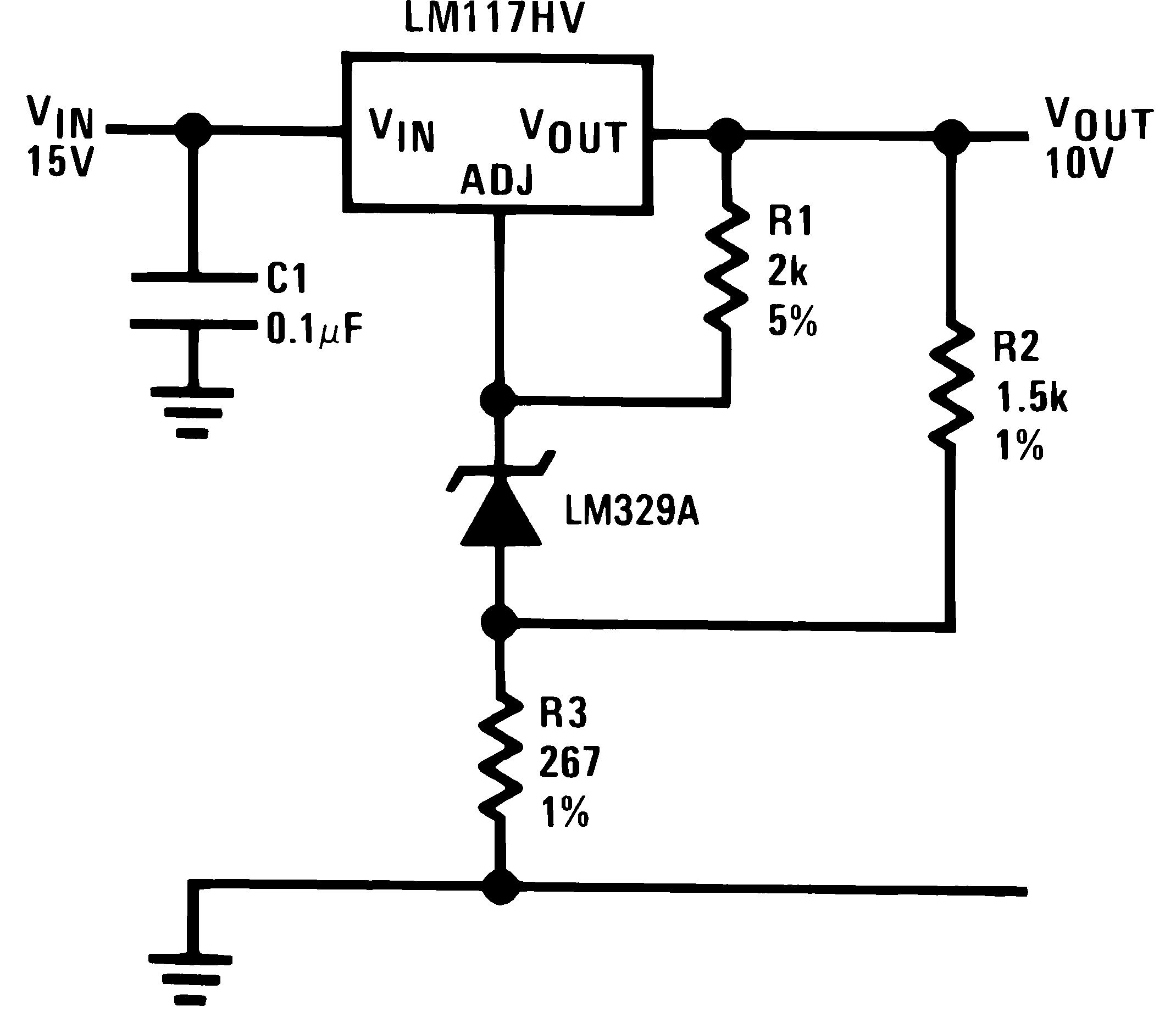 Figure 9-6 High Stability 10-V
Regulator
Figure 9-6 High Stability 10-V
Regulator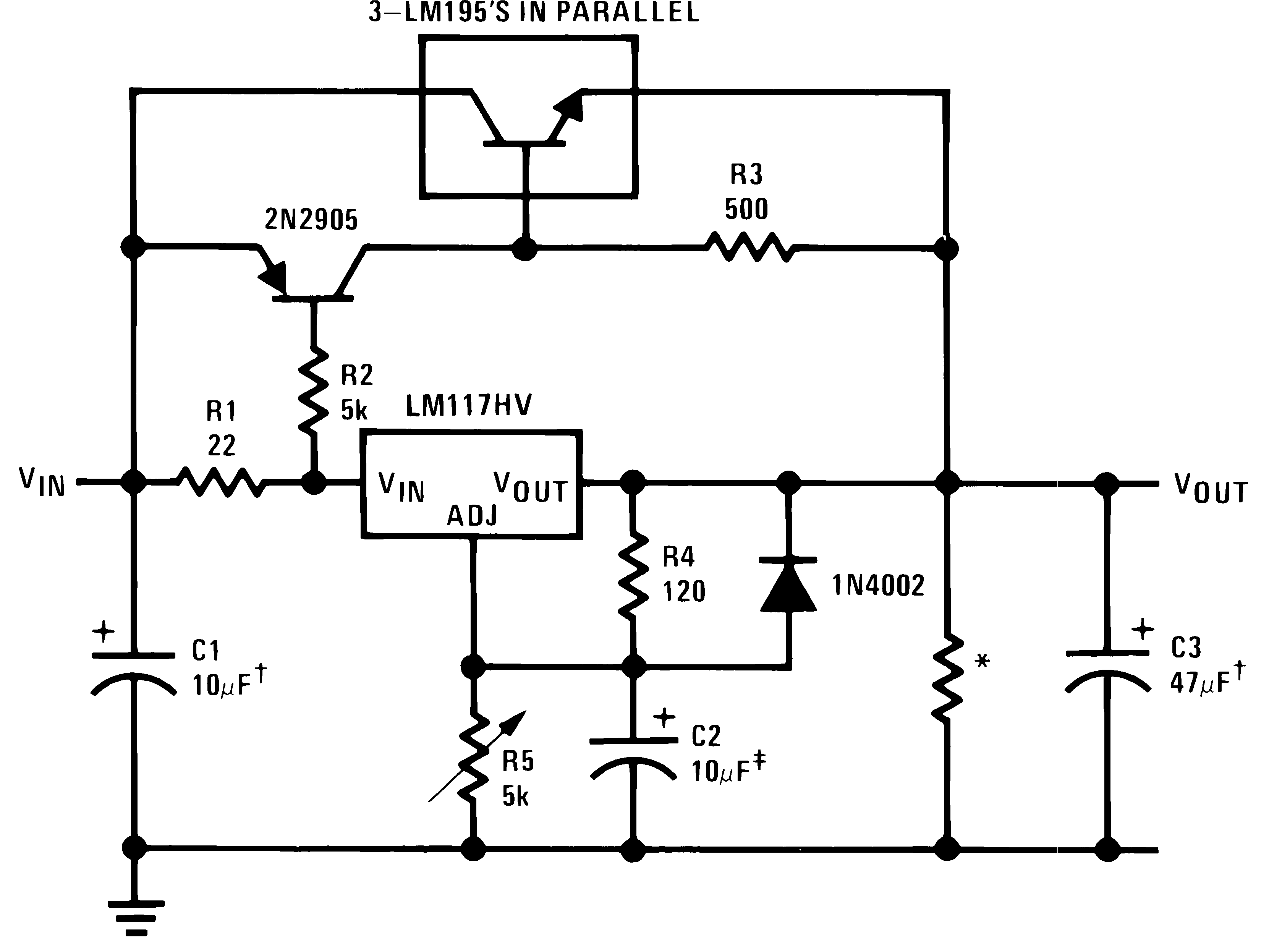
†Solid tantalum
*Minimum load current = 30 mA
‡Optional—improves ripple rejection
Figure 9-7 High Current Adjustable Regulator*Minimum load current = 30 mA
‡Optional—improves ripple rejection
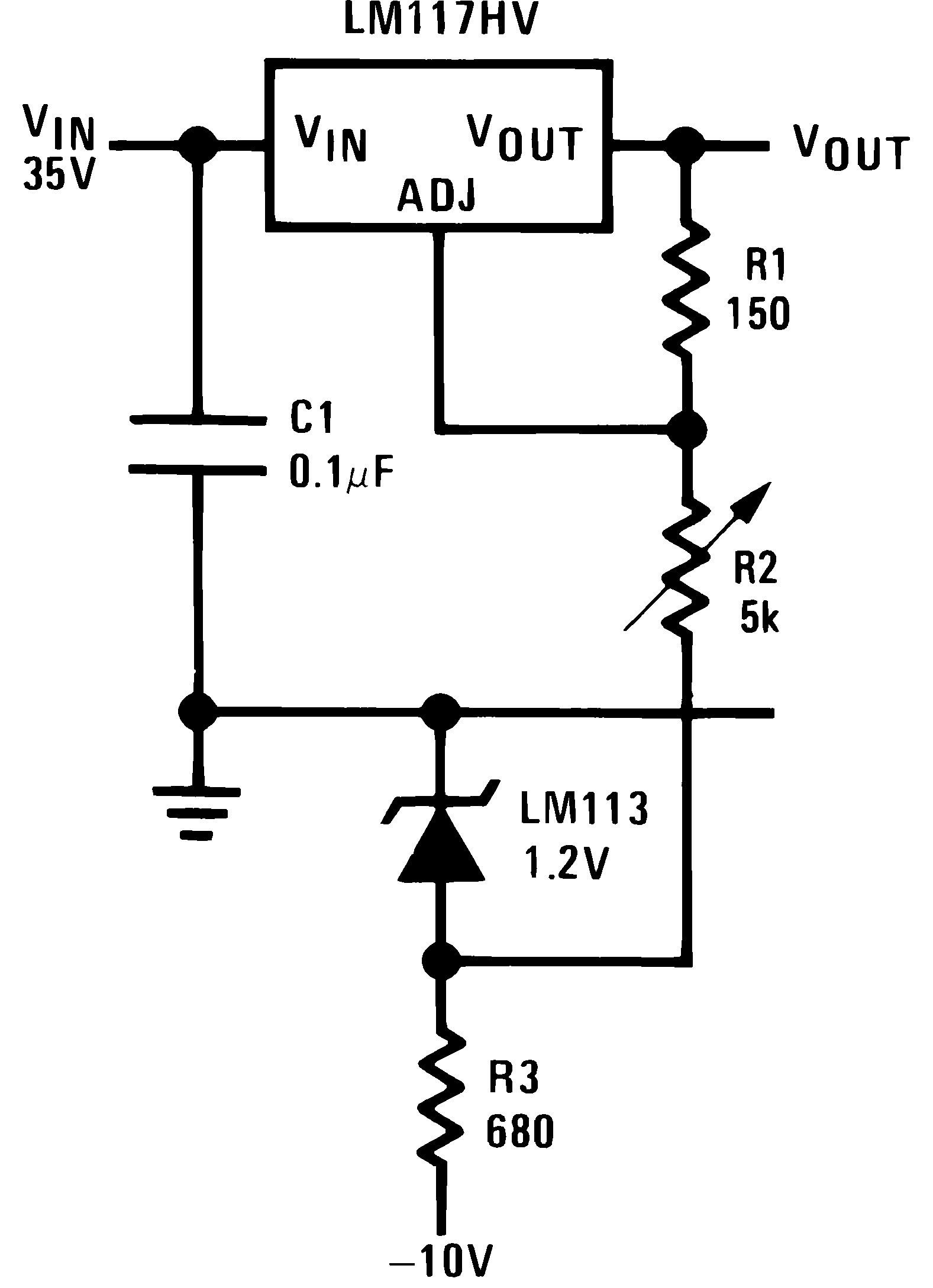
Full output current not available at high input-output voltages
Figure 9-8 0-V to 30-V
Regulator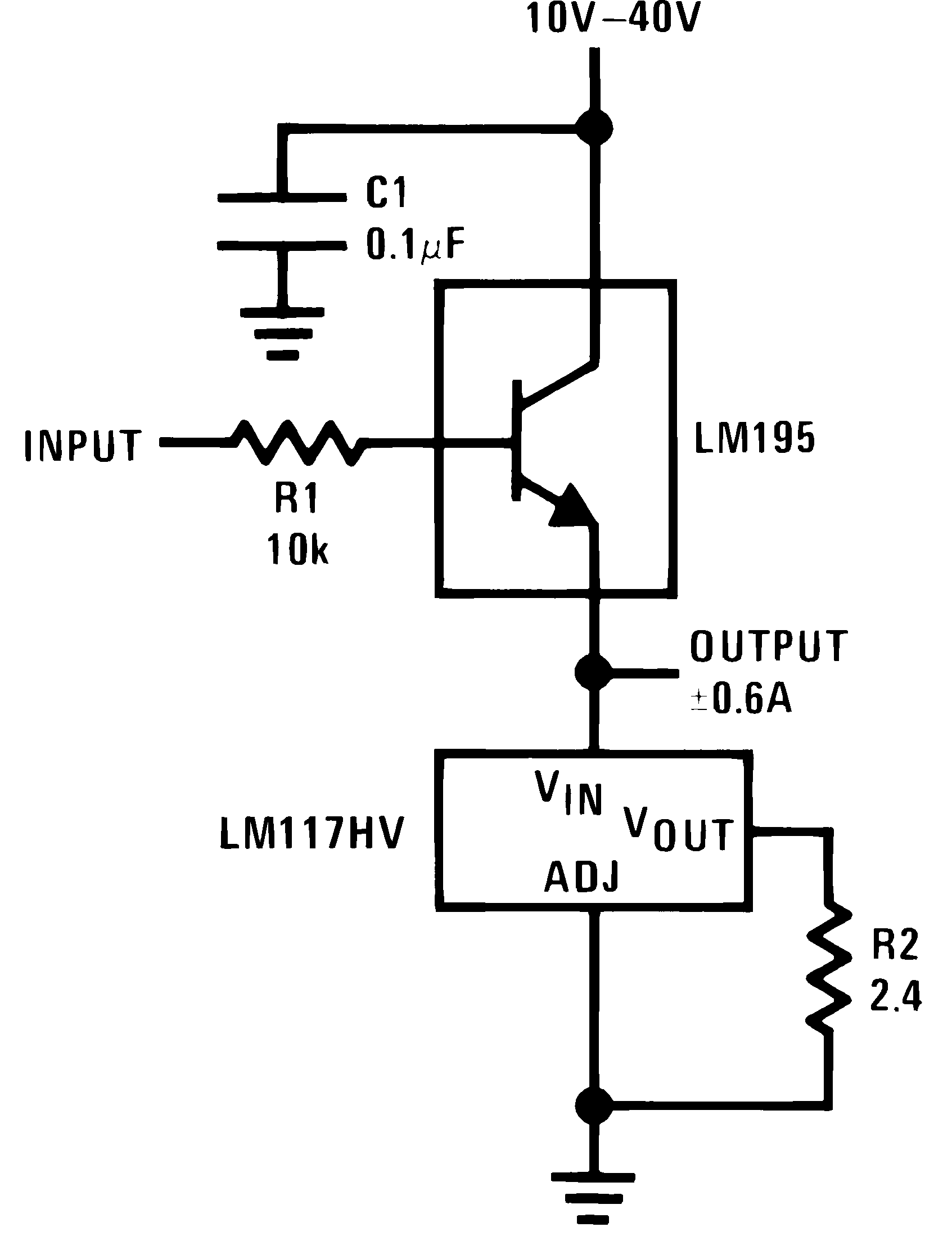 Figure 9-9 Power Follower
Figure 9-9 Power Follower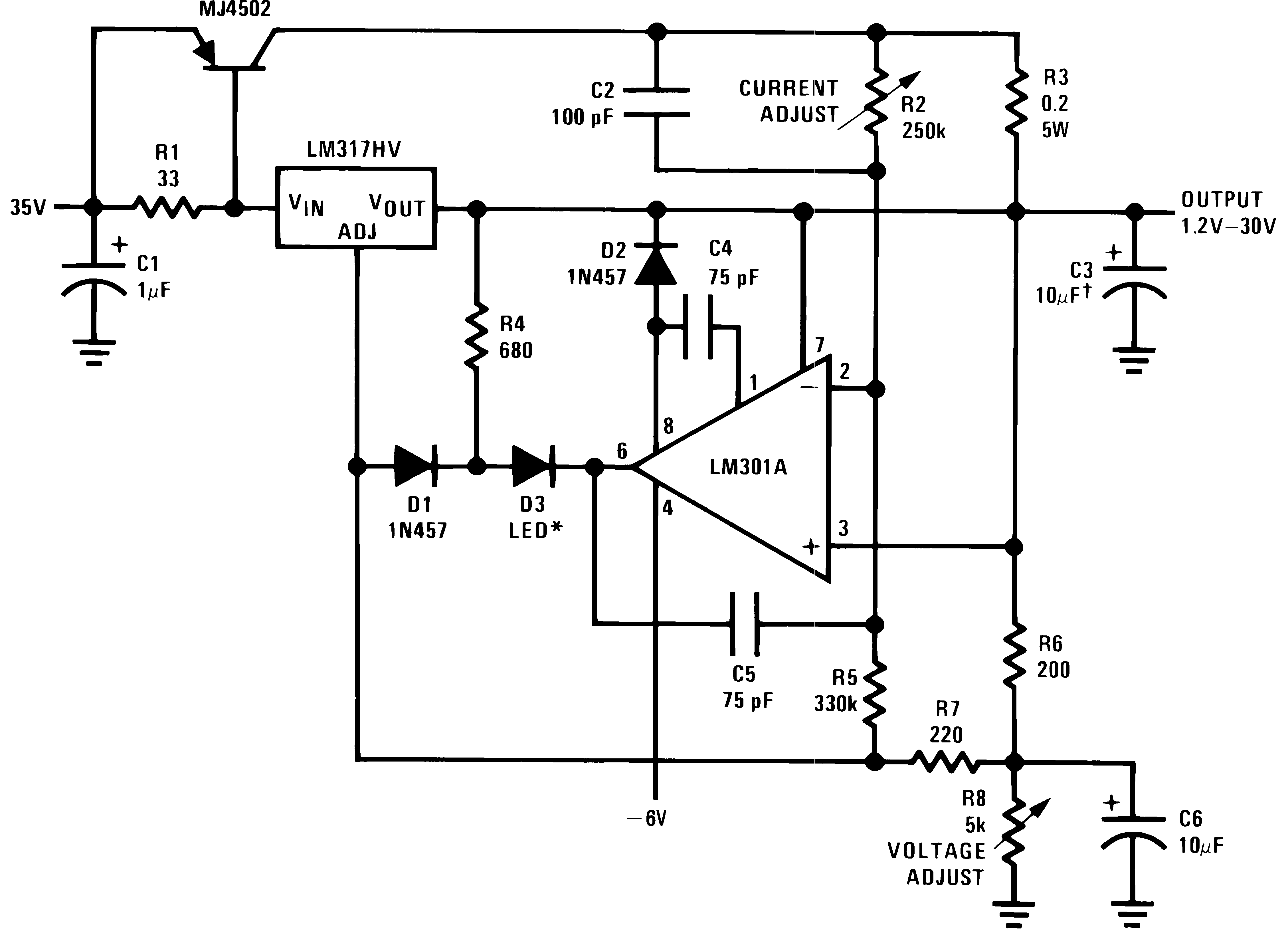
†Solid tantalum
*Lights in constant current mode
Figure 9-10 5-A Constant
Voltage/Constant Current Regulator*Lights in constant current mode
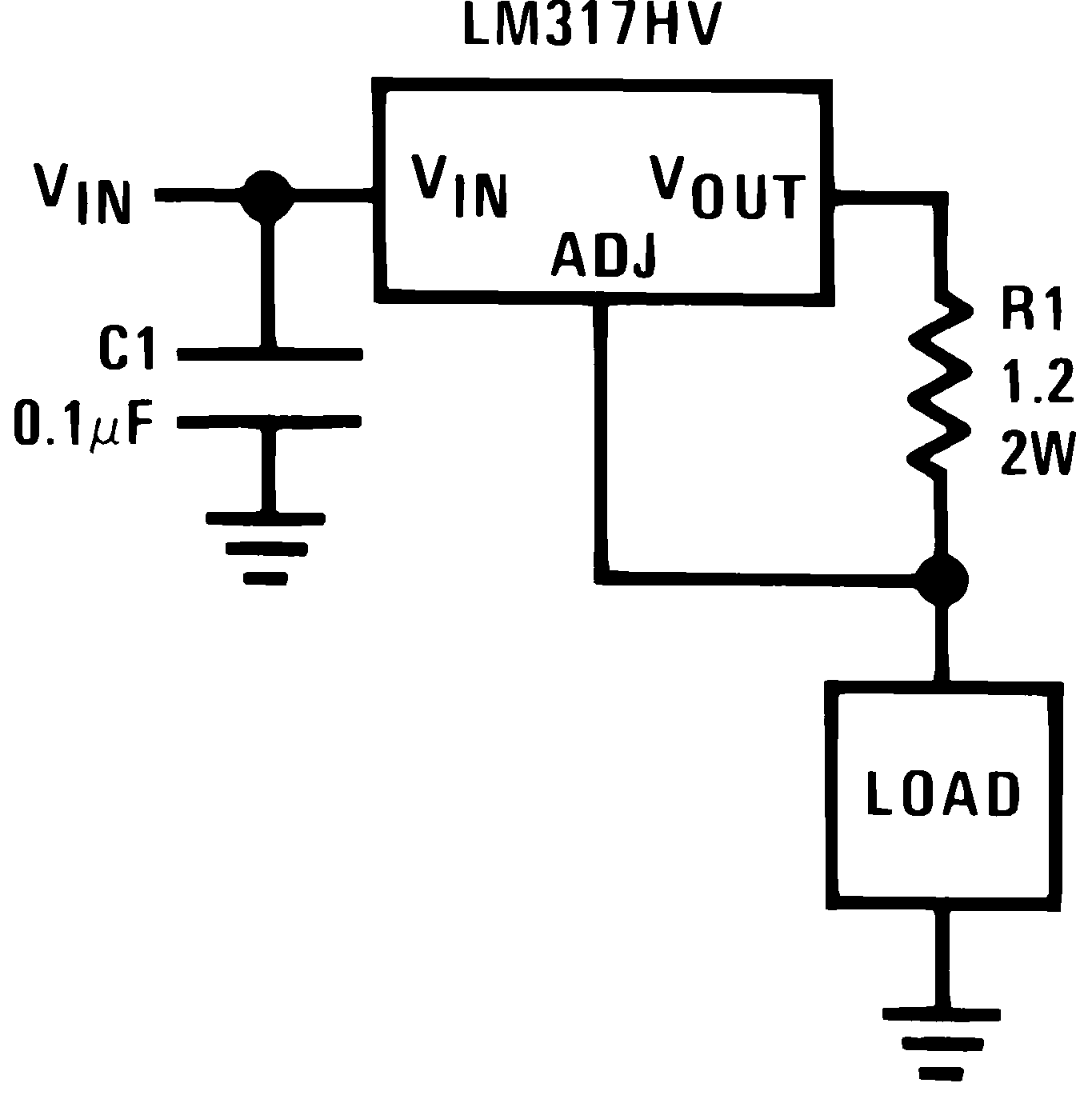 Figure 9-11 1-A Current
Regulator
Figure 9-11 1-A Current
Regulator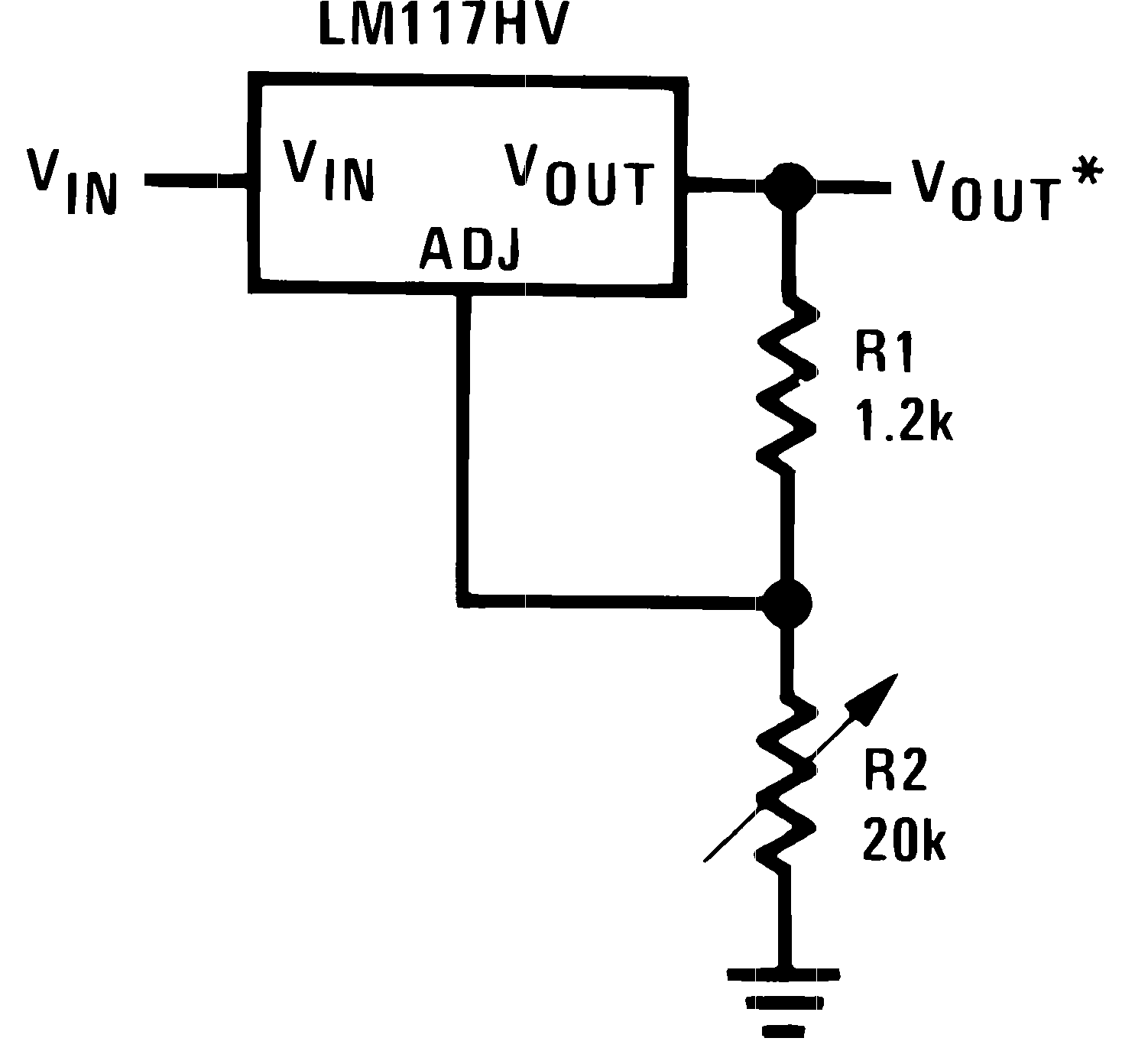
*Minimum load current ≈ 5
mA
Figure 9-12 1.2-V–20-V Regulator With
Minimum Program Current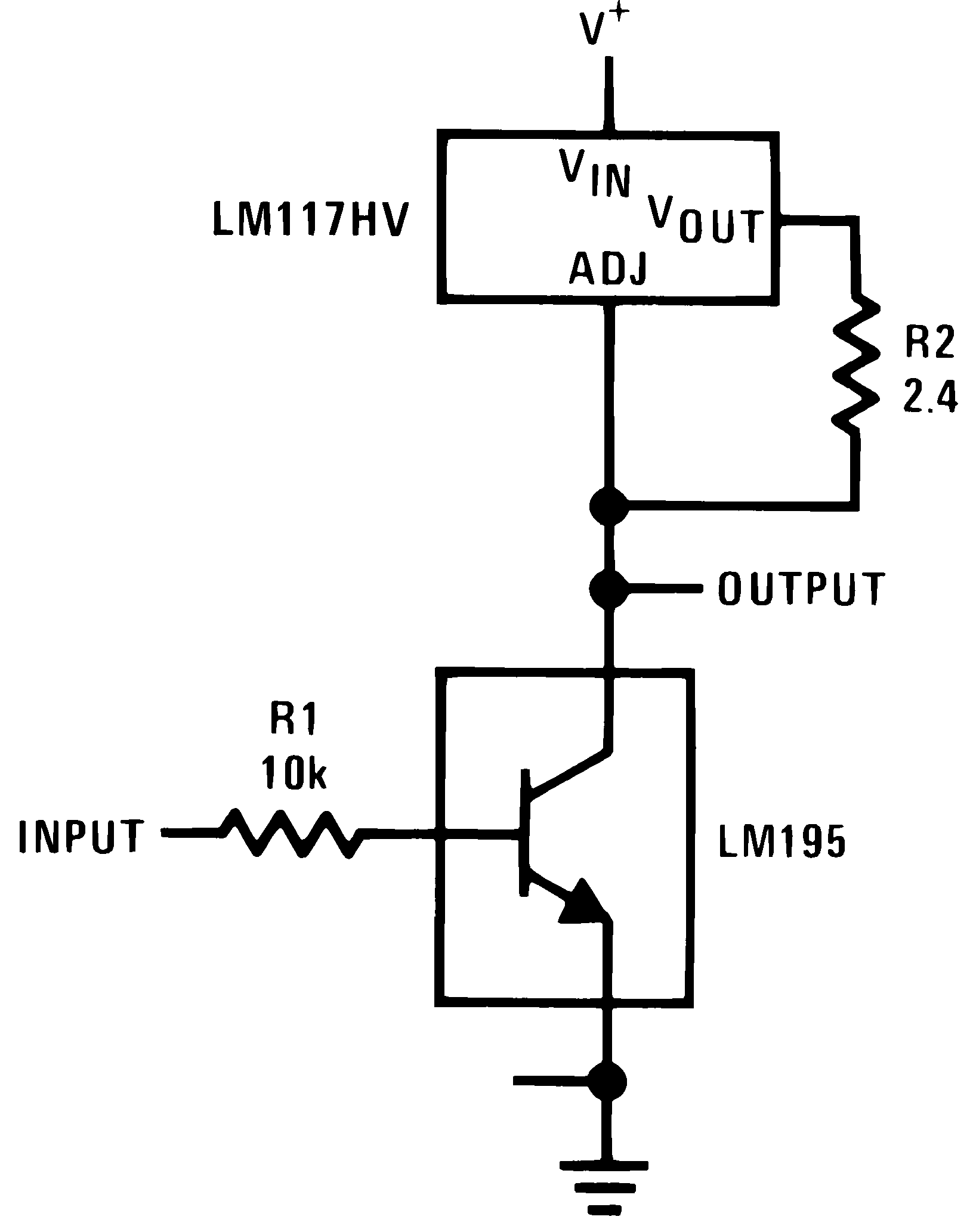 Figure 9-13 High Gain Amplifier
Figure 9-13 High Gain Amplifier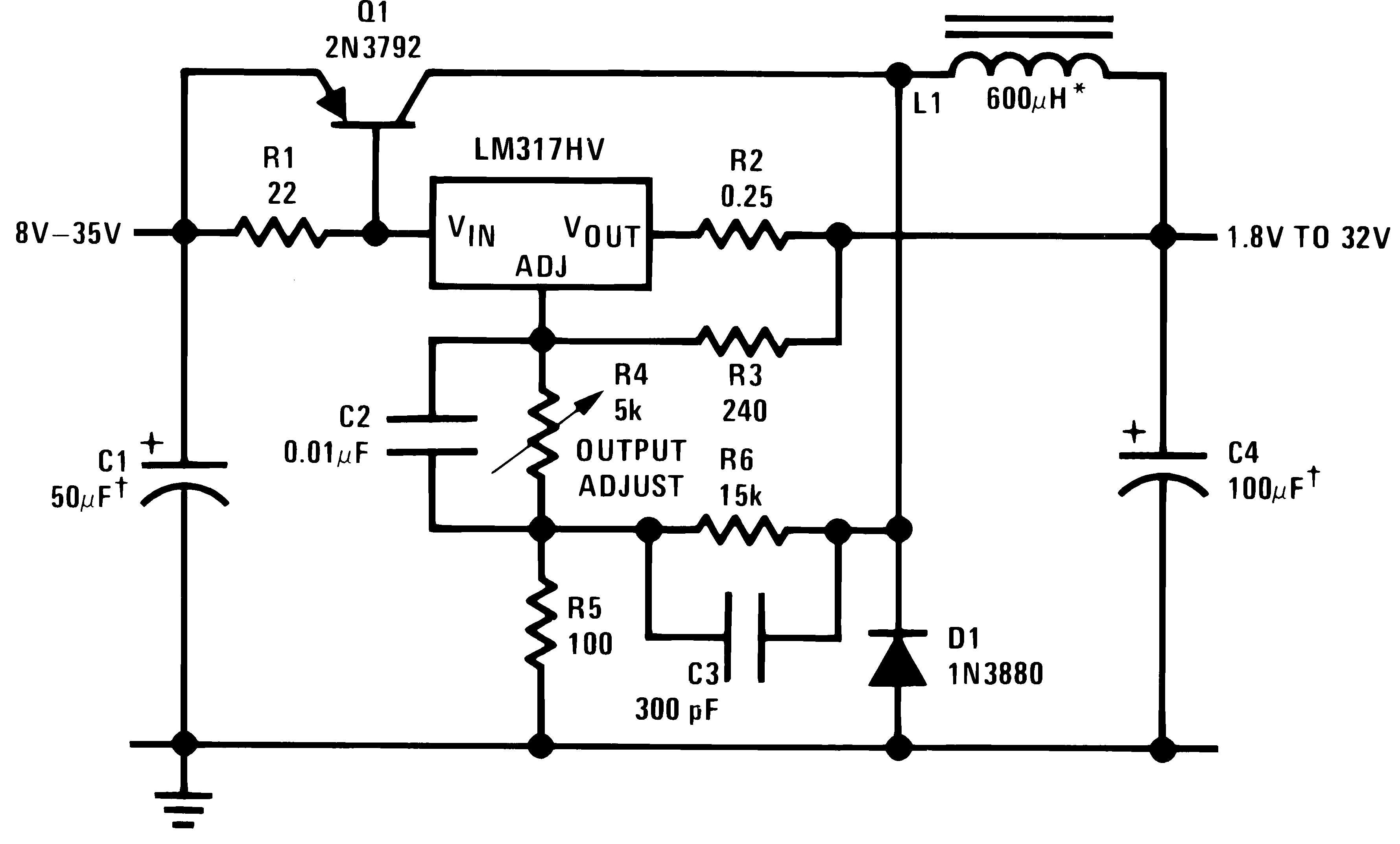
†Solid tantalum
*Core—Arnold A-254168-2 60 turns
Figure 9-14 Low Cost 3-A Switching
Regulator*Core—Arnold A-254168-2 60 turns
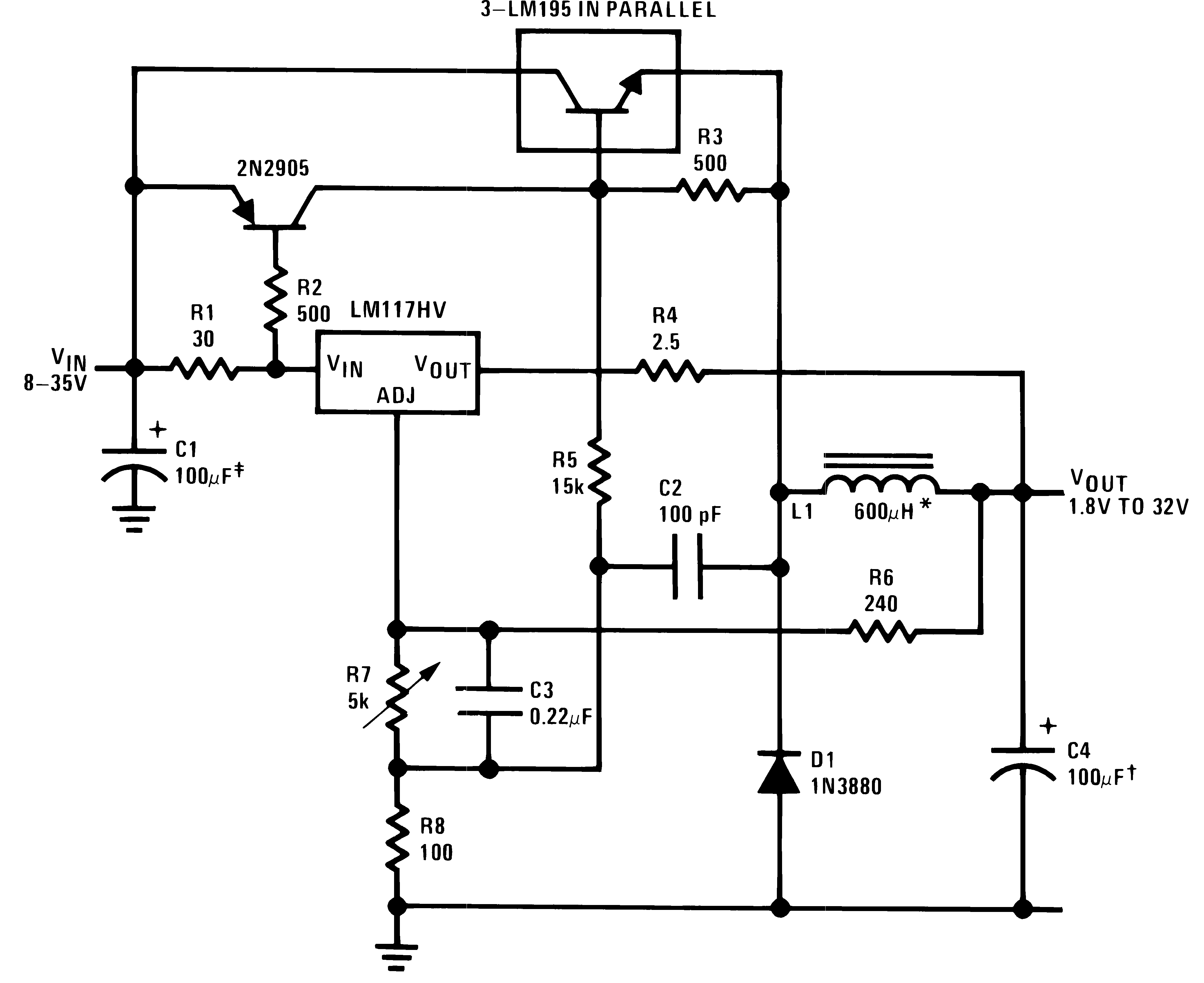
†Solid tantalum
*Core—Arnold A-254168-2 60 turns
Figure 9-15 4-A Switching Regulator
With Overload Protection*Core—Arnold A-254168-2 60 turns

* 0.8 Ω ≤ R1 ≤ 120 Ω
Figure 9-16 Precision Current Limiter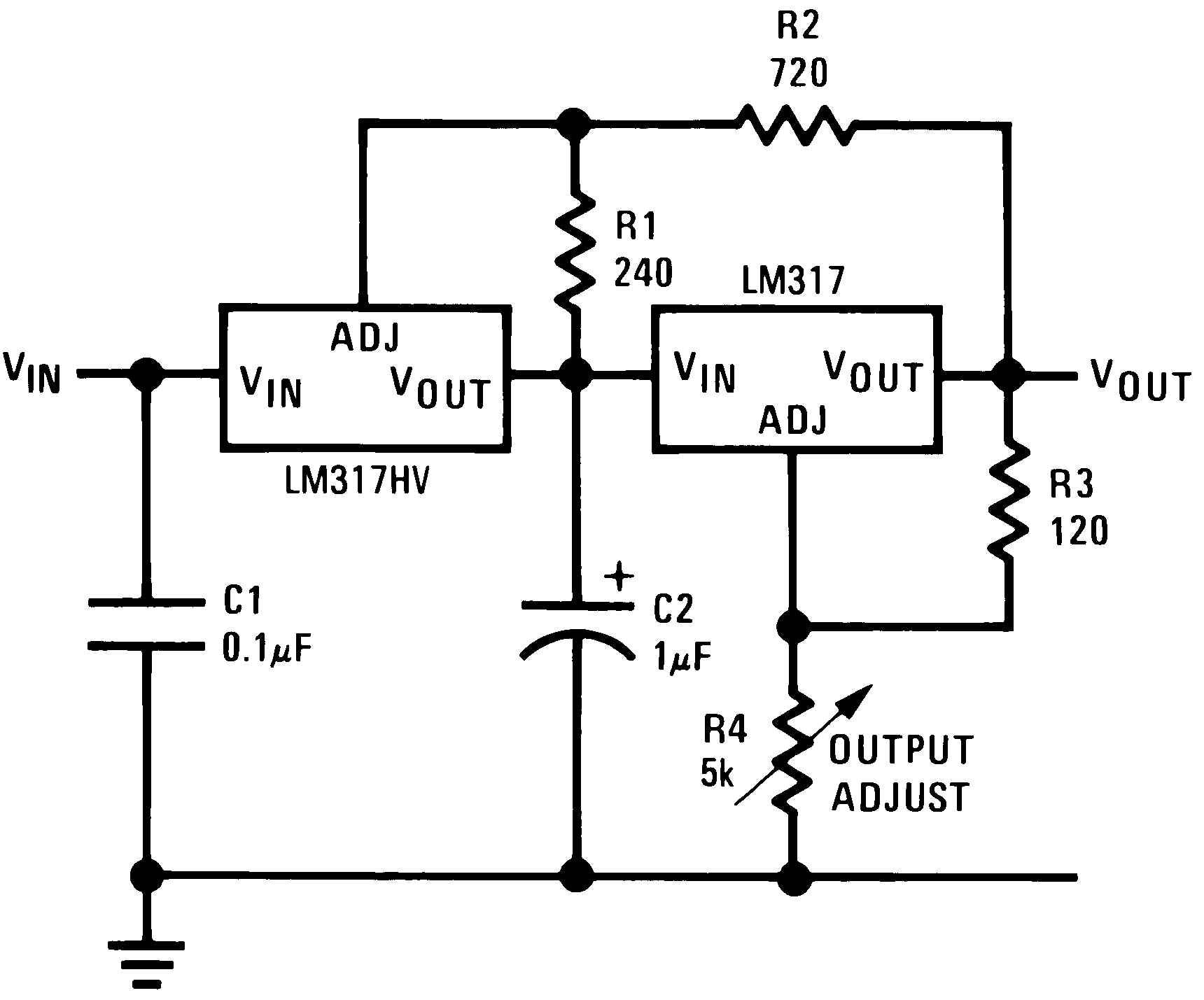 Figure 9-17 Tracking Preregulator
Figure 9-17 Tracking Preregulator
*All outputs within ±100 mV
†Minimum load = 10 mA
Figure 9-18 Adjustable Multiple
On-card Regulators With Single Control*†Minimum load = 10 mA
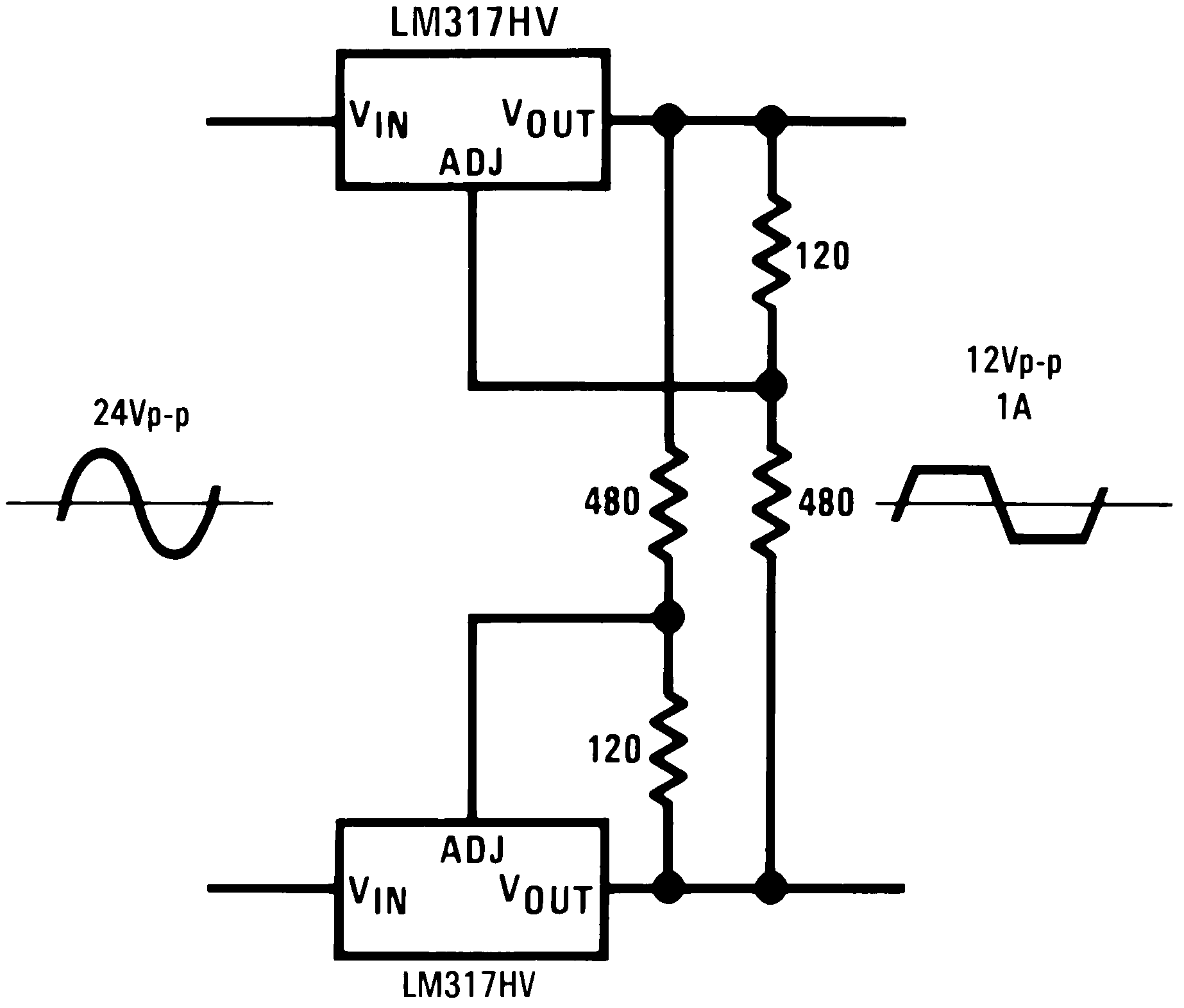 Figure 9-19 AC Voltage Regulator
Figure 9-19 AC Voltage Regulator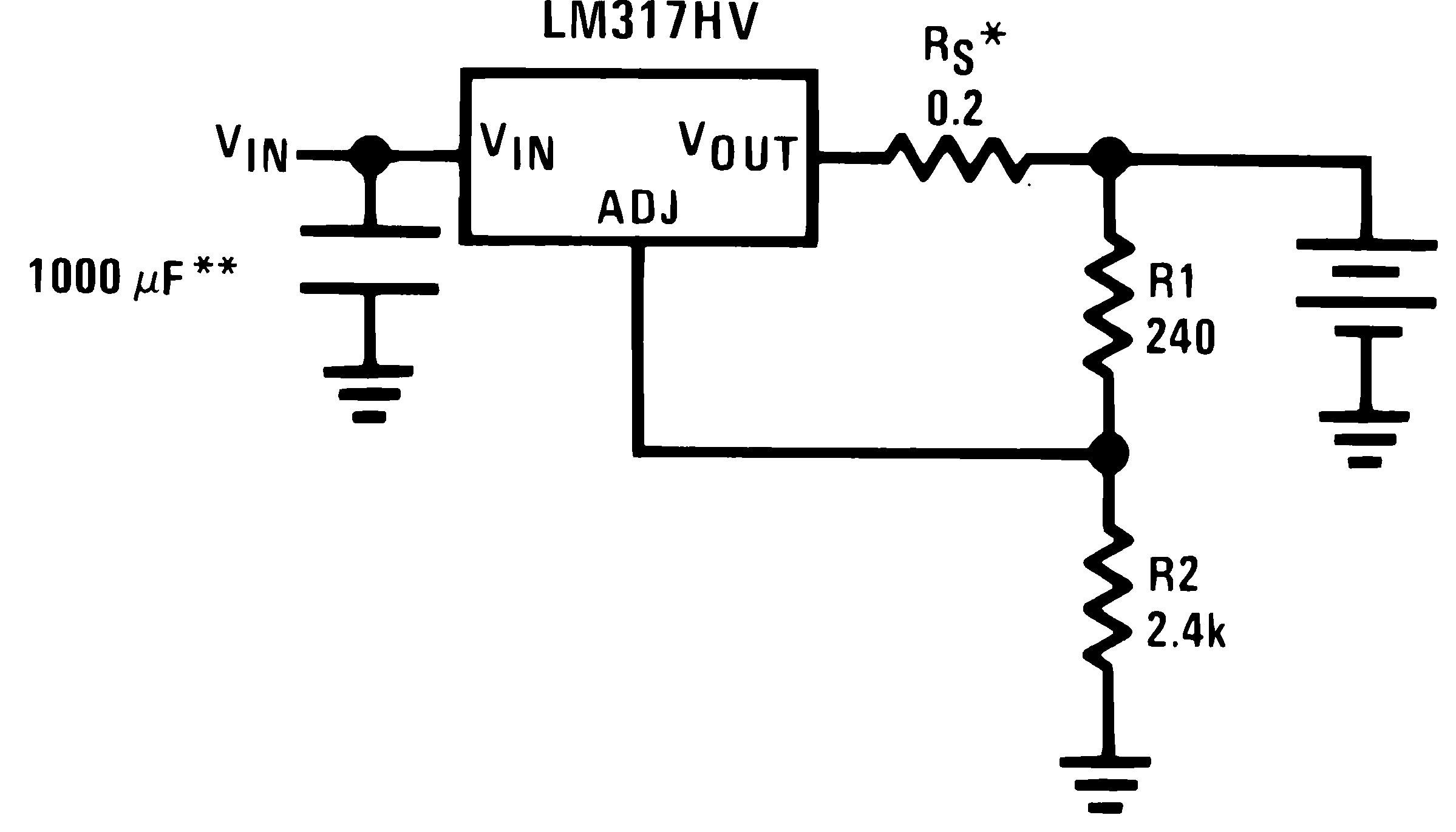

Use of RS allows low charging rates with fully charged battery.
**The 1000 μF is recommended to filter out input transients
Figure 9-20 12-V Battery
Charger**The 1000 μF is recommended to filter out input transients
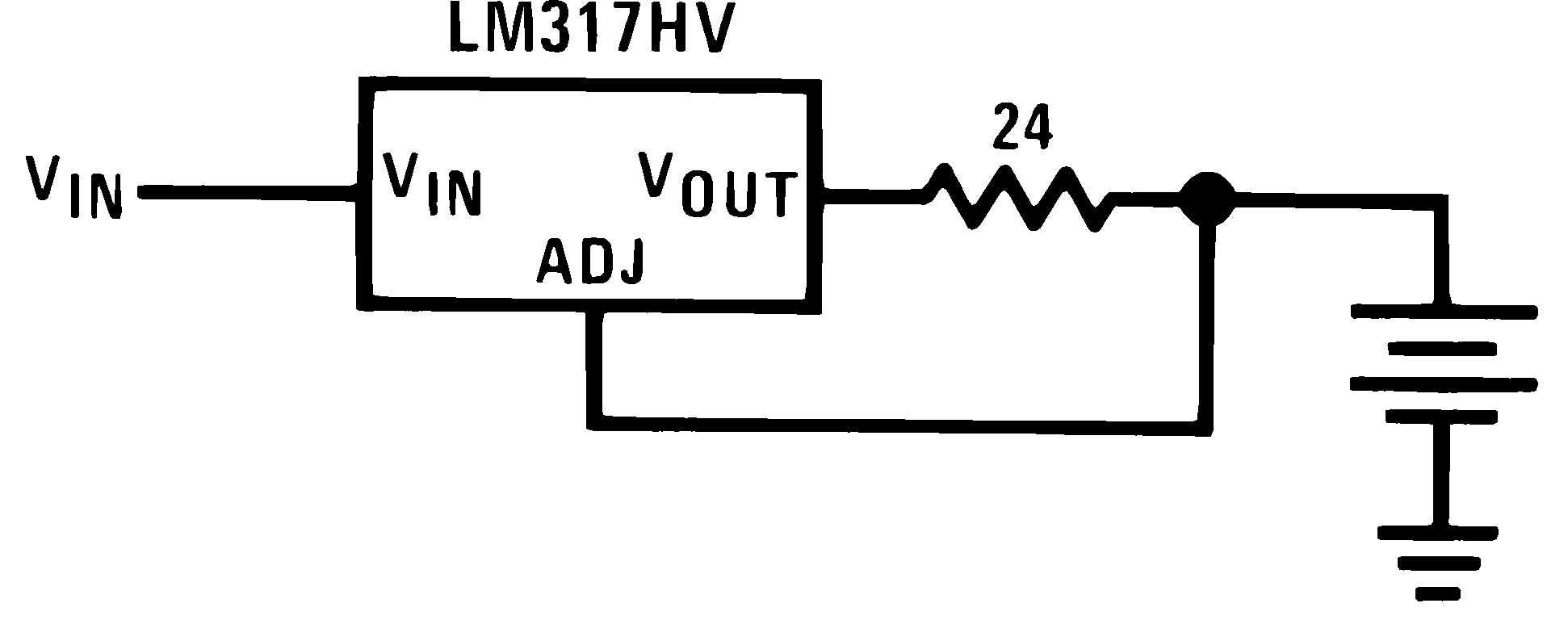 Figure 9-21 50-mA Constant Current
Battery Charger
Figure 9-21 50-mA Constant Current
Battery Charger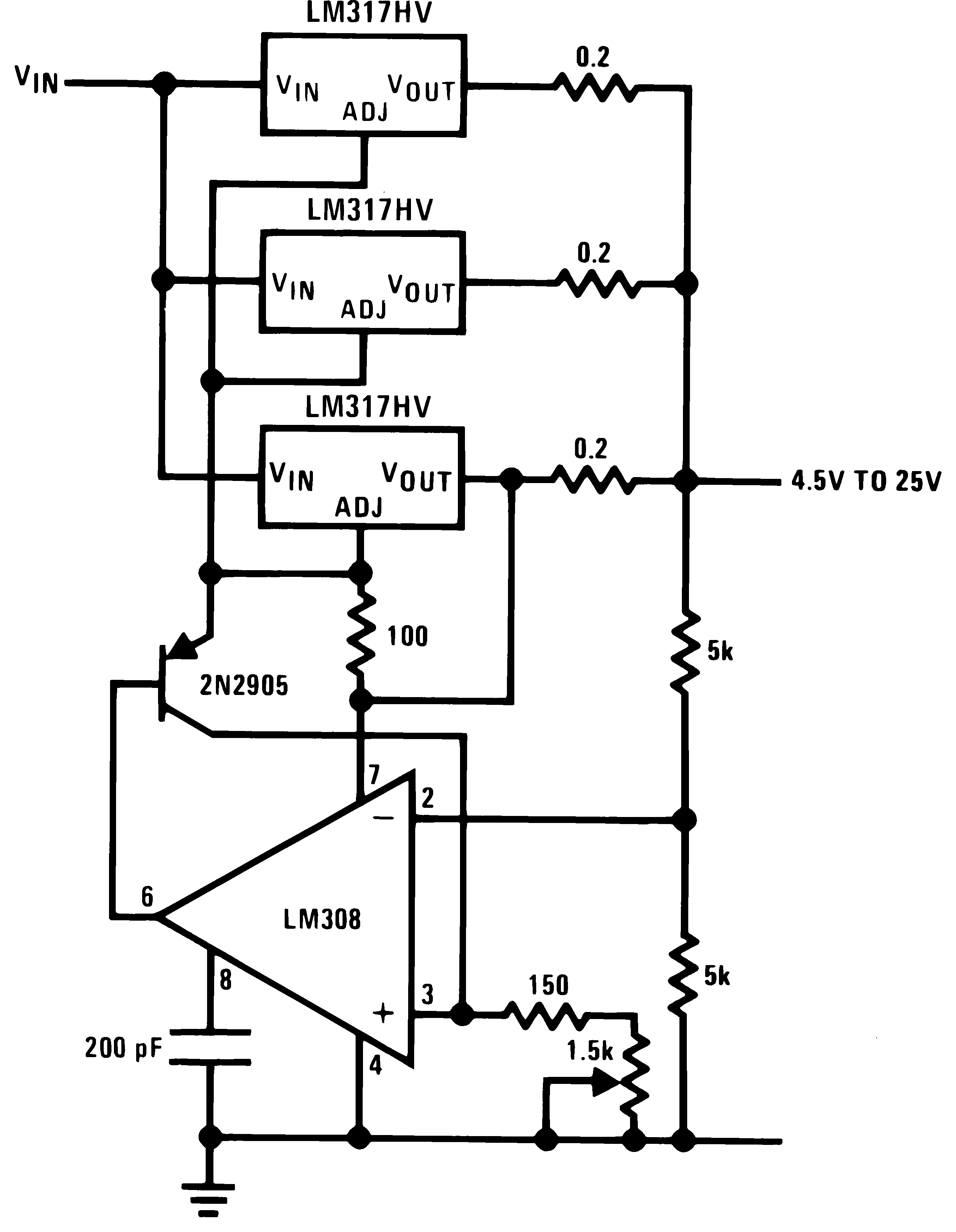 Figure 9-22 Adjustable 4-A
Regulator
Figure 9-22 Adjustable 4-A
Regulator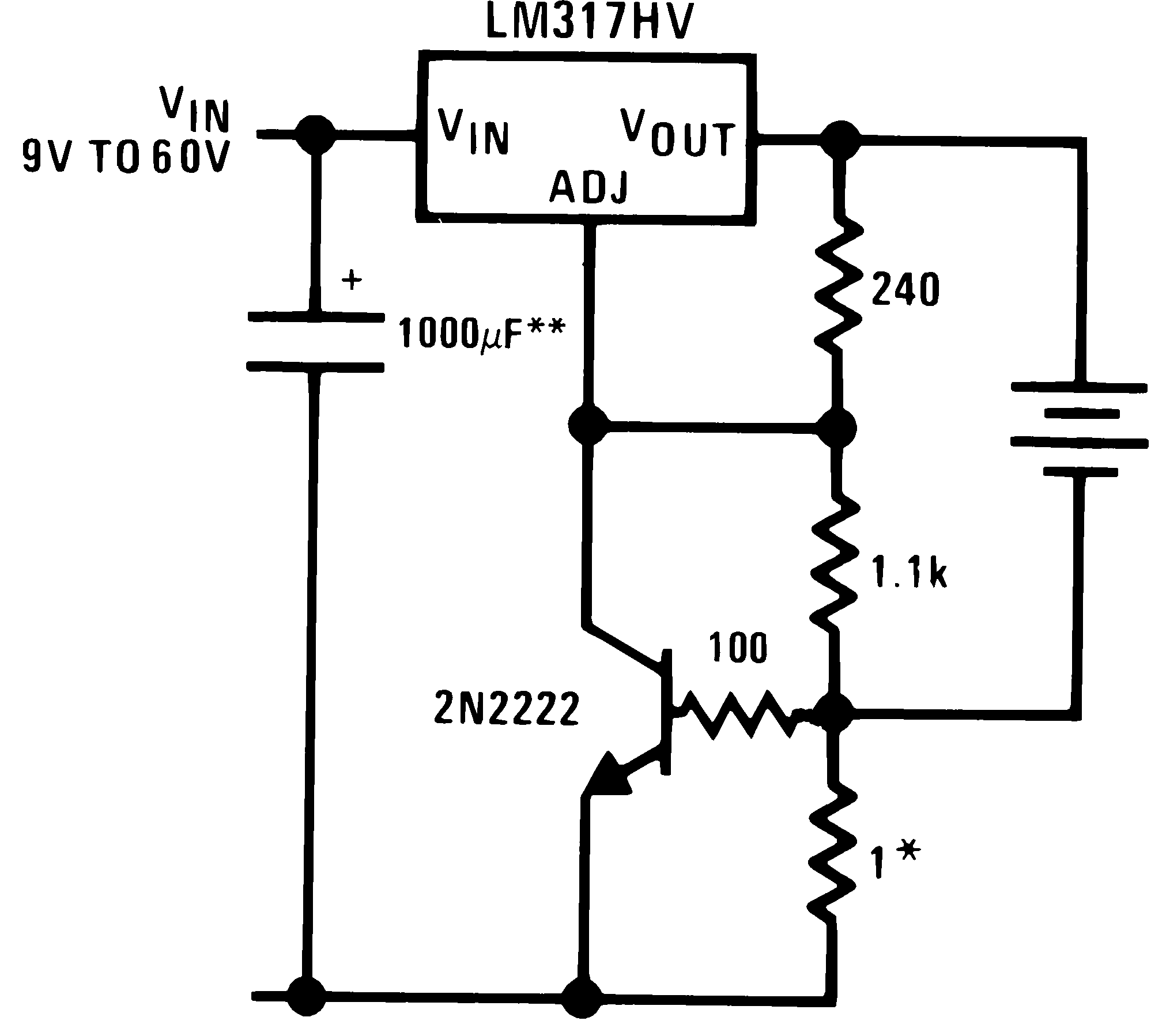
*Sets peak current (0.6 A for 1
Ω)
**The 1000 μF is recommended to filter out input transients
Figure 9-23 Current Limited 6-V
Charger**The 1000 μF is recommended to filter out input transients